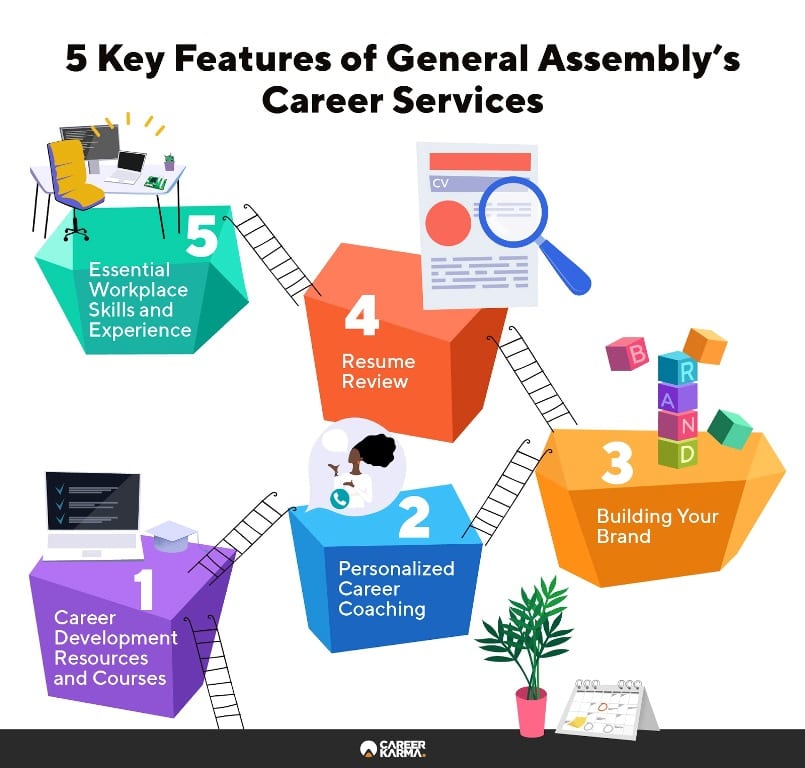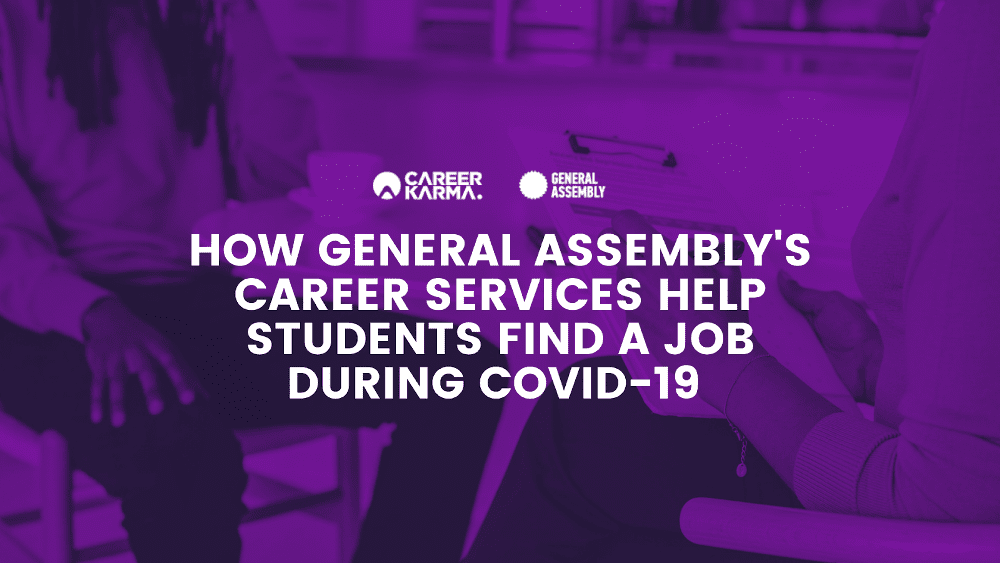Higher education is failing to meet one of its top promises to its students: employment.
A recent report by job site Monster reveals that among the Class of 2020 college graduates, 45 percent remain unemployed. While a significant part of this is due to the onset of the pandemic, a lot of college graduates have actually been struggling to get their careers off the ground even before the health crisis began.
The Economic Policy Institute in 2019 notes that college graduates have been facing higher unemployment rates since 2000. For career development professional Andy Chan, partly to blame is the outdated notion of colleges’ career services where they’re treated as an add-on to a degree or a last-minute attempt to employment.
His solution: “Career services must die.” In particular, schools must rethink the idea of career services and treat it as a critical facet of a student’s learning experience.
He isn’t alone in this sentiment.
In fact, a Forbes article recently offered a five-point action plan that, if followed, would ideally give college graduates a chance at gainful employment. The points are as follows:
- Provide students with multiple “career exploration resources and short courses.”
- Offer personalized career assessments.
- Leverage digital credentials on social networking sites.
- Optimize student resumes for applicant tracking systems
- Equip students with some work experience.
What’s interesting is that while these points remain ideas or suggestions for traditional colleges and universities, they have long been a reality for the students of coding bootcamp General Assembly.
How? The coding bootcamp leverages a key selling point to aspiring General Assembly students other than skills training: its career services.

Inside General Assembly’s Career Services: Five Key Features
Let us be clear: General Assembly’s career services team is not a staffing agency. It does not exist to hand out jobs to students. It does, however, help students build on critical job search skills and translate these into meaningful employment through a dedicated team of career coaches.
In the words of General Assembly Career Coach Audrey Galo: “We offer creative solutions for where [students] can find these [job] opportunities and better position themselves to be in front of hiring managers and recruiters.”
With that in mind, let’s see how General Assembly meets the five-point action plan above.
1. General Assembly’s Career Services
Becoming a General Assembly student means two things. First, you gain access to all the instructional resources you’ll need to be proficient in your chosen tech field. Second, you’ll have access to the resources provided by General Assembly’s career services team when you enroll in an Immersive course.
These resources include a range of interactive in-class programs such as weekly webinars, alumni and employer panels, workshops, and hack-a-thons. Through these, you’ll get a firsthand insight into current hiring trends and industry demands as well as the career paths that you can take after you graduate.
You’ll also learn the following:
- Different job search strategies and how to apply them
- How to manage your time and boost your overall productivity
- How to recognize opportunities and connect with your prospective employers
- How to articulate your competencies during job interviews; and
- How to negotiate your salary once you receive an offer
Put together, these programs span the entire job search lifecycle.
2. Personalized Career Coaching
The centerpiece of General Assembly’s career services is the one-on-one career support provided by the school’s career coaches.
As you train, you will be assigned to a career coach who will help you navigate the job search according to your needs, skills, interests, and circumstances. This means that the guidance you get will always be unique to you.
So, how does this work?
One of the services your coach will provide is the interview prep where you’ll learn how to master both technical and behavioral job interviews. This entails sitting through mock interviews where you’ll get constant feedback on how best to communicate your expertise and experience to your prospective employer.
On the personal development side, your career coach will help you address day-to-day challenges so that you stay on track with your goal.
“As coaches, we make sure that we’re thinking about the whole person,” says Audrey. “We need to consider all the different types of support that someone might need and how we might have to point them in a different direction so they can get that support.”
“For example, I’ve had some students who were dealing with a lot of anxiety over their job search. My role as a job coach was to identify their needs and offer or point them towards the resources that might cater to those needs.”
“I think that’s something that, as a coach, is completely new and different [since the pandemic began]. I have had to figure out the balance of holding someone accountable but also realizing that the students have a really big challenge happening in their life right now,” Audrey shares.
“And really, I just have to be creative around reconfiguring that balance, lending them that time, and saying, ‘You actually do have to take care of yourself. You need to be fully present in this search in order for it to be successful.’”
Put simply, career coaching at General Assembly is holistic. It doesn’t solely focus on getting your career off the ground but also on making sure that you thrive during your career transition.
3. Building Your Brand
“One of the biggest mistakes that a job seeker can make would be to think that sending cold applications out there is going to do the trick,” says Audrey. For her, the trick is in building relationships through networking.
Admittedly, some might shy away from the word due to the images that it typically conjures—awkward mixers, overzealous people, and insincere conversations. When done right, however, networking can be your key to employment.
In fact, a survey conducted by consulting firm Performance-based Hiring Learning System reveals that 85 percent of jobs are filled through networking. It’s an approach, says Audrey, that’s even more valuable now.
“One of the things that you’ll see hiring managers and recruiters do when there are crises or slowdowns in hiring is they go to the people that they know,” she says. “They trust more of the referrals. They trust people who are recommended to them and who they’ve heard are particularly skilled in a certain area.”
“If you think about it, there’s a lot more risk for companies to hire unknown candidates right now,” Audrey points out. “Why? Because if they’ve slowed down hiring significantly, the hires they make mean a lot more to their talent pool. They’re not hiring 20 people a month. Instead, they’re hiring two or three, so they want to be really precise about that.”
This is why at General Assembly, students are coached about how they can leverage social networking tools and sites to make their skills visible to hiring managers and recruiters.
A few examples, says Audrey, include using teleconferencing tool Zoom for informational interviews and bringing your professional story to life on LinkedIn to attract the attention of employers.
4. Resume Review
Resume review is one of the classic and perhaps most-used services that you can get when you visit a career center. General Assembly amps this feature up by showing how you can optimize your resume in a way that would satisfy not just the employers but also the applicant-tracking systems.
General Assembly also has an ongoing partnership with career marketplace Hired that allows students to create profiles, which are available for the viewing of around 8,000 companies.
5. Essential Workplace Skills and Experience
For a hiring manager, the goal is to gain firsthand insight into what an applicant can do and add to the company. General Assembly students make this easy through their professional portfolios, which are readily accessible on GitHub.
The portfolios are a collection of projects that students have built throughout their training at General Assembly. These allow employers to get a better grasp of their skills, thought processes, and how they create technical documentation for their projects.
Key Takeaway
Everything that General Assembly offers from getting into the school all the way to graduation is designed to prepare students for the workforce. It starts from a market-led curriculum that helps them get through the doors of the industry and ends with a career coaching program that helps them choose their place in the industry.
General Assembly’s career services are embedded into the students’ education-to-career experience. So instead of waiting for students to come to the Career Coaching Team as is what’s expected in traditional colleges and universities, the bootcamp brings career services to the students and makes it a part of their training.
So far, this strategy seems to be working.
Are General Assembly Students Getting Hired During the Pandemic?
A report from General Assembly reveals that hiring for the school’s graduates has been on the rise during the first quarter of 2021. The uptick has to do with the arrival of a hiring boom fueled by the acceleration of vaccine rollouts.
“Moving into 2021, we’re already seeing improvements, with companies removing hiring freezes and climbing back toward pre-pandemic levels. As of May, recruitment for tech jobs reached a new high, superseding pre-COVID levels,” says the report.
That said, it’s worth pointing out that while General Assembly appears to be off to a good start in terms of job placement this year, the school has had a stellar run over the years—with or without a hiring boom.
A deep dive into General Assembly’s Outcomes Report reveals that 91.4 percent of job-seeking students who went through the career coaching program in 2018 hit their goal within six months of graduation. The following year, 90.5 percent of job-seeking graduates landed full-time roles within the same period.
Indeed, since its inception, General Assembly has managed to place its students in household names like Google, Facebook, Microsoft, Twitter, Amazon, Coca-Cola, and IBM.
Looking for Job Search Support?
Amid fierce competition for meaningful employment, having career coaching services to rely on is a powerful differentiator among graduates who are set to join the workforce.
“Everyone is capable [of succeeding],” says Audrey, “but we all need a support system.” General Assembly’s career coaches provide this by teaching and empowering students with the resources and job search strategies they need to increase their chances of landing their dream jobs.
Want to know more about this school but don’t know where to start? Read some General Assembly reviews. If you want to get a peek at how that support looks, try General Assembly’s free career development workshops and events. If you like what you see, explore General Assembly’s programs, go through the training, and get your resume fast-tracked into the ‘yes’ pile.
About us: Career Karma is a platform designed to help job seekers find, research, and connect with job training programs to advance their careers. Learn about the CK publication.




